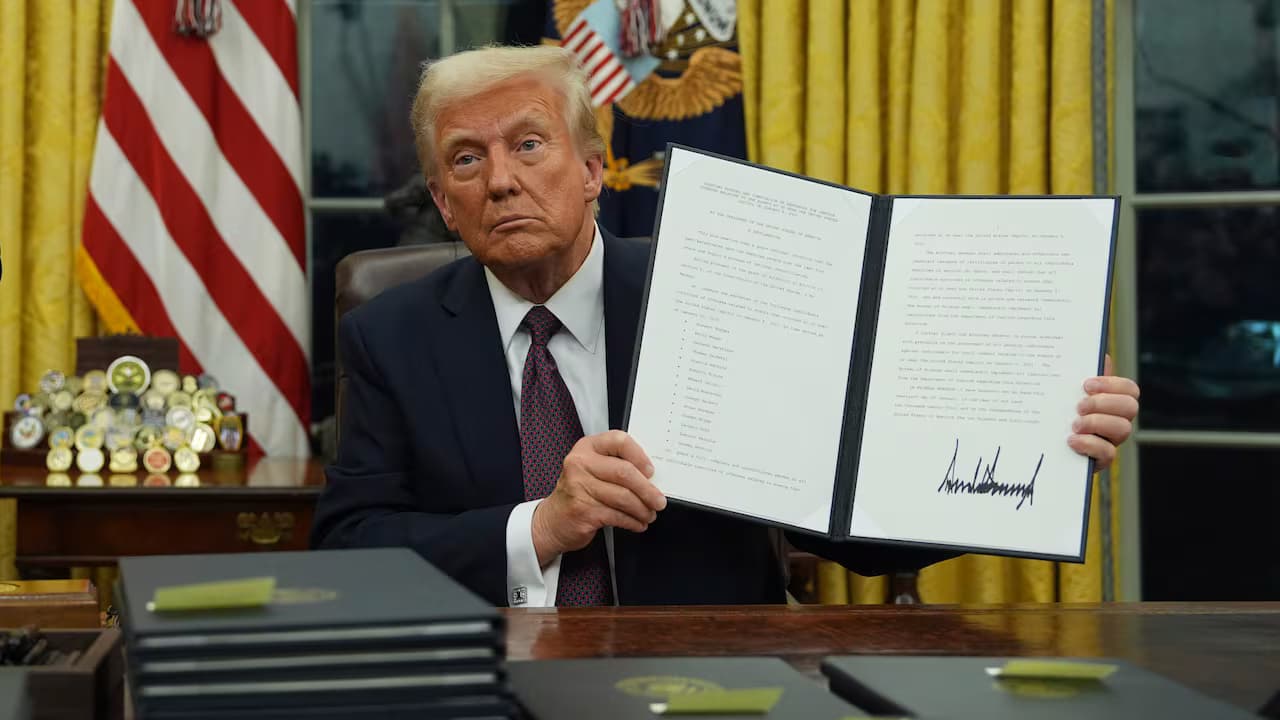We're loading the full news article for you. This includes the article content, images, author information, and related articles.
Former U.S. President Donald Trump's remarks on seeking an unconstitutional third term have ignited a global debate on democratic norms, with potential implications for political stability and international relations, including with key allies like Kenya.

Former U.S. President Donald Trump has again stirred controversy by publicly musing about seeking a third presidential term, a move explicitly barred by the U.S. Constitution. On Wednesday, October 29, 2025, while aboard Air Force One, Trump told reporters, “it’s too bad” he is not permitted to run in 2028, adding, “If you read it, it’s pretty clear.” These comments have amplified discussions on the resilience of American democratic institutions and the potential global ripple effects of such rhetoric.
The primary barrier to any president serving more than two terms is the 22nd Amendment to the U.S. Constitution, which was ratified on February 27, 1951. It states, “No person shall be elected to the office of the President more than twice.” This amendment formalized a tradition established by the first U.S. President, George Washington, who voluntarily stepped down after two terms. The only president to serve more than two terms was Franklin D. Roosevelt, whose four-term presidency during the Great Depression and World War II prompted the constitutional change.
House Speaker Mike Johnson, a key Republican ally of Trump, publicly addressed the constitutional impossibility of a third term. On Tuesday, October 28, 2025, Johnson told reporters at the U.S. Capitol, “I don’t see a path for that,” confirming he had discussed the “constrictions of the Constitution” with Trump. Johnson explained that amending the Constitution is a deliberately arduous process, requiring a two-thirds majority vote in both the House and Senate, followed by ratification from three-fourths of the state legislatures. He characterized Trump's remarks as a way of “trolling the Democrats.”
While a third term for Trump is constitutionally blocked, the repeated questioning of established term limits by a prominent global leader has broader implications. For nations across the world, including in East Africa, the strength and stability of U.S. democratic norms are often seen as a benchmark. Political analysts suggest that such rhetoric can embolden leaders in other countries who may seek to extend their own mandates, potentially undermining democratic governance globally. The United States has historically promoted democratic principles abroad, and any perceived weakening of its own commitment to these ideals could diminish its influence and credibility on the world stage.
The discussion also emerges at a time of shifting U.S. foreign policy. Recent reports indicate a planned visit to Nairobi in late November by U.S. Vice President JD Vance, the first high-ranking Trump administration official to visit East Africa. This visit is set against a backdrop of complex U.S.-Kenya relations, with Washington reviewing Kenya's status as a major non-NATO ally amid Nairobi's growing ties with China and Russia. Trump himself has recently questioned the value of the U.S. military partnership with Kenya, calling it a “waste of time and money,” which has caused concern in Kenyan leadership circles.
Experts in U.S. constitutional law affirm that the 22nd Amendment is unambiguous. However, the repeated floating of the idea by a former president is seen by some as a tactic to maintain political relevance and challenge established norms. Trump has dismissed suggestions of circumventing the amendment by running as a vice-presidential candidate and then assuming the presidency, calling the idea “too cute” and not something the American people would accept.
The episode serves as a significant case study in the durability of constitutional checks and balances. While Speaker Johnson and other political figures have reinforced the legal barriers, the continued public discourse highlights the tensions between political rhetoric and foundational legal principles. For international observers in Kenya and the wider region, the situation underscores the importance of robust constitutional frameworks and the peaceful transfer of power, principles that are central to long-term stability and economic development. The U.S. response to these internal challenges to its democratic traditions will be closely watched by allies and adversaries alike, signaling the future direction of its global leadership role.
Keep the conversation in one place—threads here stay linked to the story and in the forums.
Sign in to start a discussion
Start a conversation about this story and keep it linked here.
Other hot threads
E-sports and Gaming Community in Kenya
Active 9 months ago
The Role of Technology in Modern Agriculture (AgriTech)
Active 9 months ago
Popular Recreational Activities Across Counties
Active 9 months ago
Investing in Youth Sports Development Programs
Active 9 months ago